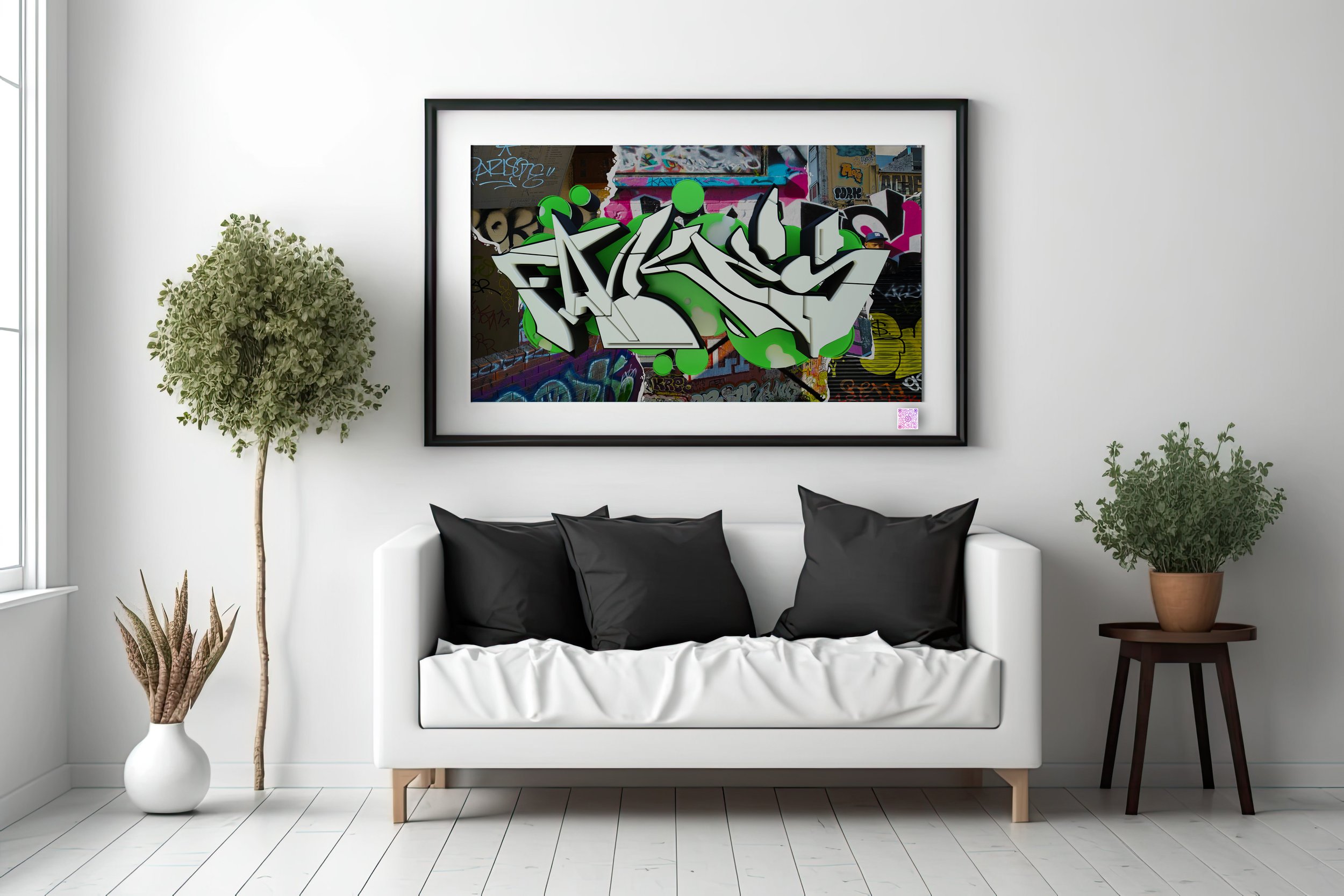FAKES AR Experience
Passion & Research Project
This research project delved into the viewing experience of graffiti art and how its context influences perception. Motivated by the desire to explore graffiti innovatively, I was intrigued by its cultural depth and the diversity within its subcultures, resonating with my heritage as a Māori.
Experimentation with graffiti across physical and digital formats led me to integrate both realms into a unified experience, with Augmented Reality emerging as the natural choice. This journey involved mastering various tools and techniques, including 3D software and Meta's Sparkstudio for AR development, and navigating the intersection between physical and digital art forms.
The culmination of these efforts resulted in a digital artwork that could be printed and displayed in diverse locations, offering viewers a multi-layered experience. Through platforms like Facebook or Instagram, audiences could interact with the artwork both as a traditional printed piece and as an augmented reality encounter, blending the physical and digital realms seamlessly.






The Process
-
Initial Digital Creation
At the project's outset, I explored graffiti beyond its traditional form of spray paint on walls. This digital illustration serves as an introduction to graffiti in alternative formats, showcasing the versatility and adaptability of the art form.

-
Digital 3D Exploration
Similar to the digital illustration, this experiment aimed to reinterpret graffiti in a fresh form. Using the illustration as a source of inspiration, I ventured into creating a 3D model. However, this experiment served more as a test rather than a finalized product, exploring the potential of graffiti in three-dimensional space.

-
Physical/Sculptural Exploration
This model was crafted to assess the feasibility of producing a physical artifact as a solution for the project. While the experiment was intriguing, logistical constraints and project timelines rendered it impractical to pursue such a direction. Consequently, the exploration of an Augmented Reality approach stemmed directly from this experiment.

-
Initial Graffiti Concept
In the initial stages of developing a mixed-media AR project, creating an initial sketch was crucial as a foundation for further work. This sketch served as a roadmap for the subsequent phases of the project, guiding its direction and development.

-
3D Asset Creation
In the initial stages of developing a mixed-media AR project, creating an initial sketch was crucial as a foundation for further work. This sketch served as a roadmap for the subsequent phases of the project, guiding its direction and development.

-
AR Testing
The concluding phase of this project involved integrating the AR element. With Meta's Spark Studio, I developed an AR interaction that elevated a flat image into the third dimension, echoing the concept explored in the initial physical model experiments.
